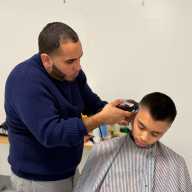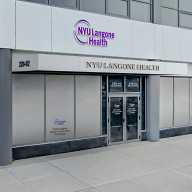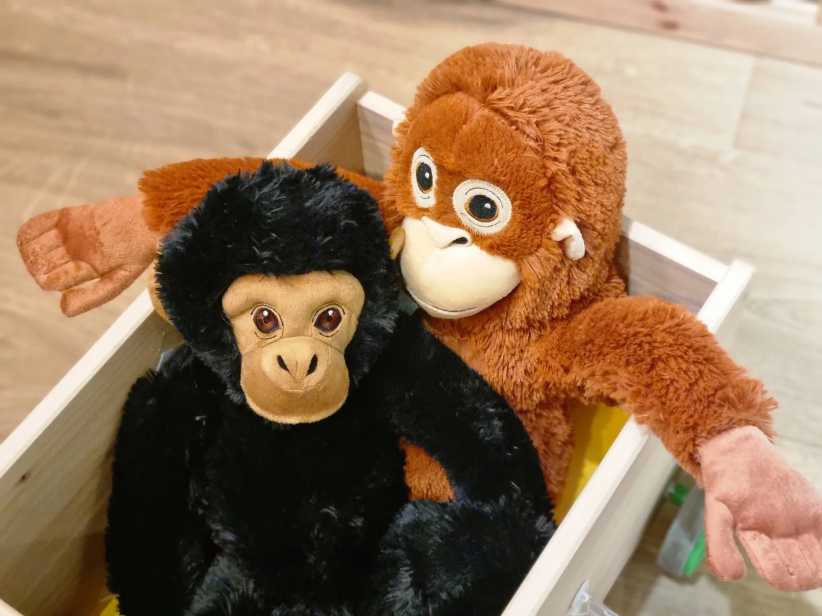On Tuesday, November 4, America reached a point in its history that some thought they would never live to see when Illinois Senator Barack Obama was elected the first African-American President of the United States.
“I wouldn’t vote for anyone else,” 81-year-old African-American William Farrar said of Obama a few days prior to the election. “If I did, my grandfather would come back and haunt me.”
During a campaign that has had many people talking about change, Obama’s election marks a major milestone in the country’s history. It is also a change that some doubted the United States was ready for.
“It was something I was hoping I would see,” Farrar said the morning after the election.
Now a resident of Flushing House, Farrar was born in Georgia in 1927. He grew up working hard on his grandfather’s farm in Macomb, while his two brothers and parents were living in Atlanta.
“Discrimination was everywhere in Georgia,” Farrar said.
Throughout his younger years Farrar said he was frequently called the “n” word, by both white children and adults, which he said was very degrading. He said that his grandfather had told him that would happen.
“We were supposed to be under them,” said Farrar, who went to a segregated school. “They always called us that. We were their servants.”
Farrar said some whites were very harsh, while there were others who weren’t as bad but would tell a black person if they thought they had stepped out of line. He said the majority of the exchanges were verbal, although he was in a few fist fights with other children. However, Farrar said his parents did not permit fighting because they knew it could lead to being hurt or even killed.
As the years progressed, Farrar said they started to see things get better, particularly when the Civil Rights Movement began. Farrar said that he was somewhat involved in the movement, including getting together with other members of the black community to talk about what was going on.
“My family didn’t want me to get involved too much,” he said. “They figured I’d get killed because they were killing blacks at the time that were participating.”
After attending Morehouse College, Farrar began working at a dairy farm in the south before moving to New York around the late 1950s, where he started working for the New York City Transit Authority.
“New York was a little better. There was some discrimination but normally it was much better,” Farrar said. “Jobs were better. You didn’t have to kow-tow to the other person or anything.”
Formerly a resident of Elmhurst, Farrar has lived in Flushing House for about a year and a half. He and his wife have three children and two grandchildren.
When Obama first announced his presidential candidacy, Farrar said he thought it was a good idea. He had heard his name before, although he was not very familiar with him prior to the campaign. Although Farrar said he had not been following the presidential campaign closely, he said that he did keep an eye on how Obama had been doing.
In the beginning, Farrar said he wasn’t sure how Obama would do, but that it felt very good to see and that “it should mean progress for everybody.”
“I didn’t think America was ready for it,” he said before the election.
Farrar’s grandfather, Cora, who passed about 1951, would have been particularly happy to see an African-American successfully making a run for the country’s highest office.
“He’d be clapping and jumping up and down,” Farrar said of how his grandfather would have reacted. “He always thought discrimination and segregation was wrong and [there] should be a better way. If he was alive he would see there is going to be a better way.”
On Election Day, Farrar was planning on listening to the news a lot. He said he is trying to teach his grandchildren, who are 11 and 8, about voting. He said that they have been more excited about this particular election and that he feels seeing Obama has been more of an inspiration to them.
When Farrar heard the news that Obama had been elected president, he said he was “was very happy for him and for the country.”
Looking to the future, Farrar said he feels this could open the door for more minorities to one day become president.
Just as he used to talk about what was going on during the Civil Rights Movement, Farrar said following the election he and his family would be discussing the events.





























